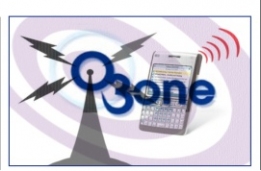O-Zone - Riding the wireless wave

-
While the wireless sector has witnessed rapid success, clocking in a growth rate of over 80 per cent per year during the past few years, broadband internet still has miles to go. Of late, however, there has been increasing focus on this segment with operators investing heavily in wireless broadband access technologies such as Wi-Fi and Wi-Max.
Wi-Fi, in fact, has carved a niche for itself in the industry and has emerged as a viable option for providing connectivity within a certain radius, or "hotspot". Its use has proliferated into several verticals such as real estate, hospitality, education, organised retailing and manufacturing. It is also proving effective in extending broadband access to remote areas.
These opportunities spell good news for start-ups such as O-Zone, which is banking its business on tapping the potential offered by Wi-Fi in the country.
Background
O-Zone's inception was inspired by the success of the popular European wireless broadband operator, The Cloud. Founded in 2003, The Cloud made a name for itself by providing Wi-Fi connectivity at thousands of indoor as well as outdoor locations. It made a big splash in Amsterdam, Stuttgart and London, and in countries like Sweden, Denmark and Norway.
Looking to replicate The Cloud's success in India, Sanjeev Sarin, along with his partner Dharmendra Amin, established OZone in 2007. O-Zone's business plan has been to build a wireless broadband entity that is a hybrid of owned, overlay and roaming networks across commercial, residential, enterprise and city-based networks, with the objective of providing a fully integrated and seamless mobile broadband experience across all of these networks at affordable prices. For this, the company has chosen Wi-Fi as its main vehicle.
To tap the emerging potential, O-Zone is laying a wireless broadband network via which it aims to provide broadband in tier 1 retail, commercial, hospitality and transportation locations (exclusively for an extended period). Upon successful deployment of the wireless infrastructure, O-Zone plans to leverage managed solutions contracts from enterprises.
The company's portfolio of services includes offerings for enterprise customers and service providers. For example, OZone's "Guest" solution for enterprise customers partitions the access device that provides internet connectivity, to offer a completely secure system that separates the employees of a company from its guests, without IT personnel having to run around to provide access and then disable it when the person has left. Through the O-Zone system, third-party users can use the network as if they were sitting in a mobile cyber café which is managed around the firewall of the enterprise.
For operators, O-Zone is building and operating a Wi-Fi network using which the service provider can interconnect with and resell bandwidth to existing customers.
The company has been awarded several contracts by telecom vendors and large construction companies. It has an exclusive 10-year contract with DLF Commercial, and will provide a Wi-Fi network across DLF's commercial estate; a nine-year contract with the Ansal Group to provide wireless broadband across the group's shopping centres; and another contract with Nokia. O-Zone has also signed multiple memorandums of understanding that are covered under non-disclosure agreements.
Outside view
While there is tremendous potential in the segment, analysts feel that product differentiation will be necessary to make a mark in the future. This is what could set OZone apart from its competition. Of key concern here could be the implementation of dependable and easily available service or "service-on-the-go". "The problem with Wi-Fi services is that people have been disappointed in the past and, should the initial service experience be poor, they may not return," says an industry expert.
Sarin has, however, taken care of that. "We have a proven track record of innovation and delivering extreme value to the end-customer. We are focused only Wi-Fi, so there are no distractions."
Of course, Sarin does not expect it to be all smooth sailing. He says, "The hospitality segment has been using Wi-Fi for years and the competition has focused in this area. So I would say that though they have an edge in this sector, they have none in the others. However, they use legacy equipment that has major disadvantages and presents significant issues before their clients. Also, the larger incumbents, which are gearing up to roll out Wi-Fi, have already established brand names that the market has a relationship with."
The road ahead
The company has identified several thrust areas. India will continue to be a prime focus area and while the company is unwilling to share any numbers, Sarin makes it clear that the company is planning to make significant investments in the country.
In the long term, the company hopes to diversify its client and product portfolios. It hopes to count the major players of the transportation, education and medical services sectors amongst its clients and to offer services such as VOIP, security, advertising and marketing, and gaming.
"O-Zone dominates the real estate sector today and will potentially dominate one other sector in the next three months. In the hospitality sector, we will make an acquisition and then it will have a large percentage in the top-tier hotels in the market," says Sarin.
Net, net, there is little doubt that the Wi-Fi segment in India is going to pick up further pace and O-Zone is confident of riding the wave when it does.
- Most Viewed
- Most Rated
- Most Shared
- Related Articles
- Brand Idea: Focus on 3G, rural areas and...
- Samsung Mobiles: Smartphone strategy for...
- BSNL: Exploring revival strategies
- Reliance Jio Infocomm: Set to change the...
- Reliance Infotel: Strongly placed to tap...
- Tulip Telecom: On a sticky financial wic...
- MTNL: Survival strategies
- Bharat Sanchar Nigam Limited: Attempts t...
- Aircel: Increasing its footprint
- Vodafone India: Growth despite regulator...






